
In this day and age, it’s pretty tough navigating your SEO vessel through the vast and treacherous search engine waters.
Not only do you have to contend with the unpredictable currents of Google’s constant algorithm updates, you’re being advised left, right and centre a veritable plethora of conflicting information on how to reach your page 1 destination!
No one (seriously, no one, anyone who says they do is a blatant liar) has SEO completely worked out, and for good reason – Google guards its search engine secrets, which has led to it becoming one of the world’s most powerful corporations and a household name, very closely.
But of those who believe they’ve come close to cracking the SEO code, some have done better than most. The rather awesome team at Backlinko.com have done a full analysis of 1 million Google search results, to answer the question:
Which factors correlate with first page search engine rankings?
While not a definitive guide on how to do precise SEO action X to achieve exact page rank outcome Y, there’s certainly enough key information here to dispel lots of common SEO ambiguities, which can help set you on the right course to the first page of Google.
Here’s what you need to know:
Backlinks (still) remain an extremely important Google ranking factor.
Surprise, surprise – backlinks are still numero uno to Google. However, we must digress on this, as this doesn’t just mean any amount of backlinks. The number of referring domains is more important versus the amount of links, so you need backlinks from as many different domains as possible.
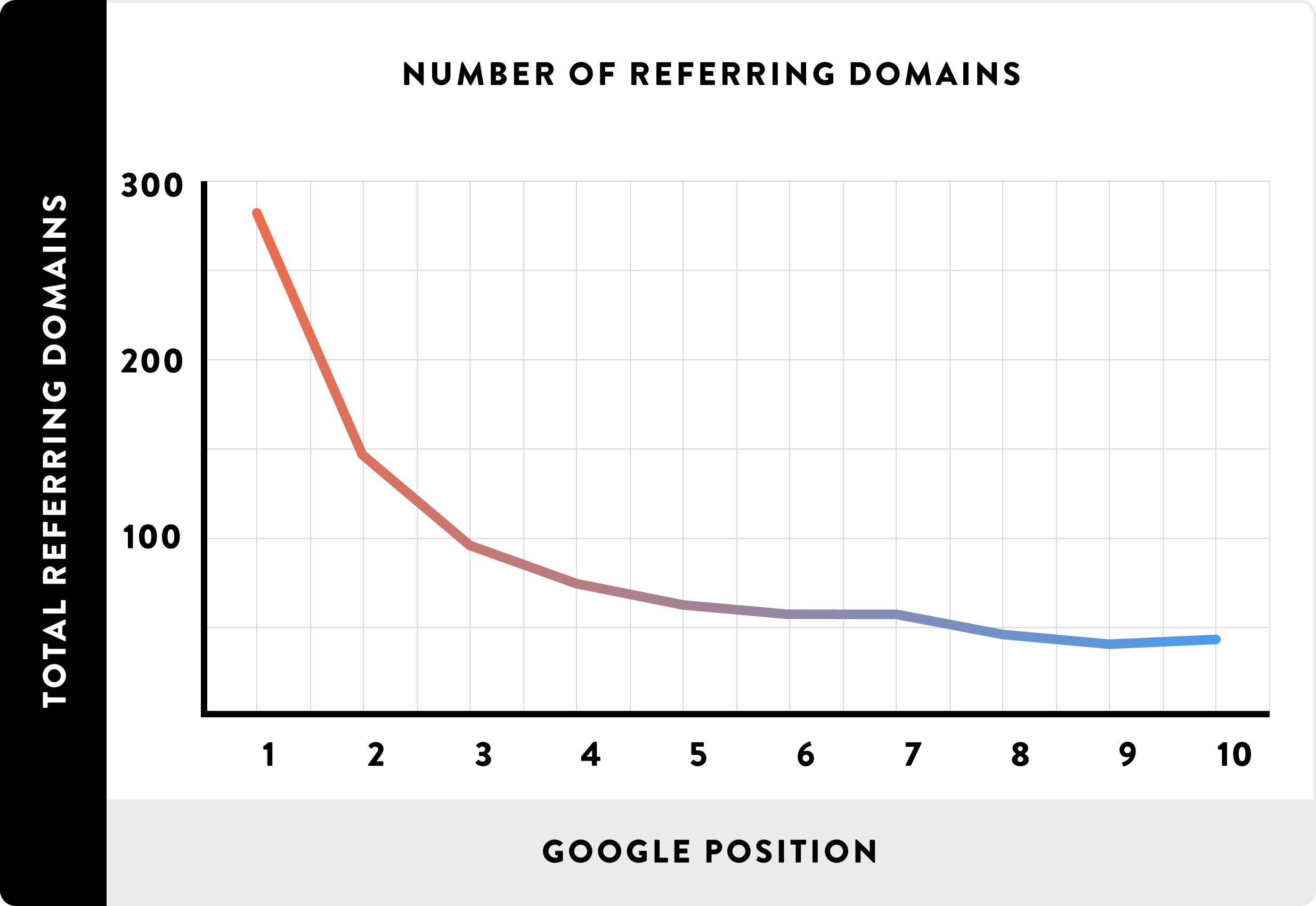
In other words, it’s much better to get 100 different links from 100 different sites, rather than 100 links from a single domain.
Further to that, domains with higher authority are obviously deemed more valuable in SEO terms. If the context is appropriate, backlinks from reputable media sites (CNN, BBC etc), government (.gov) and educational (.edu) domains are the best. Attain those, and you’ll be well on your way to SEO glory!
A higher bounce rate means a lower ranking.
Not many things strike more fear into a website manager than a high bounce rate. After all, if visitors are bouncing off your site like a trampoline, it’s pretty clear that people don’t find your site useful or engaging enough to stick around. It would then make little sense for Google to give your site a high rank in the search results.
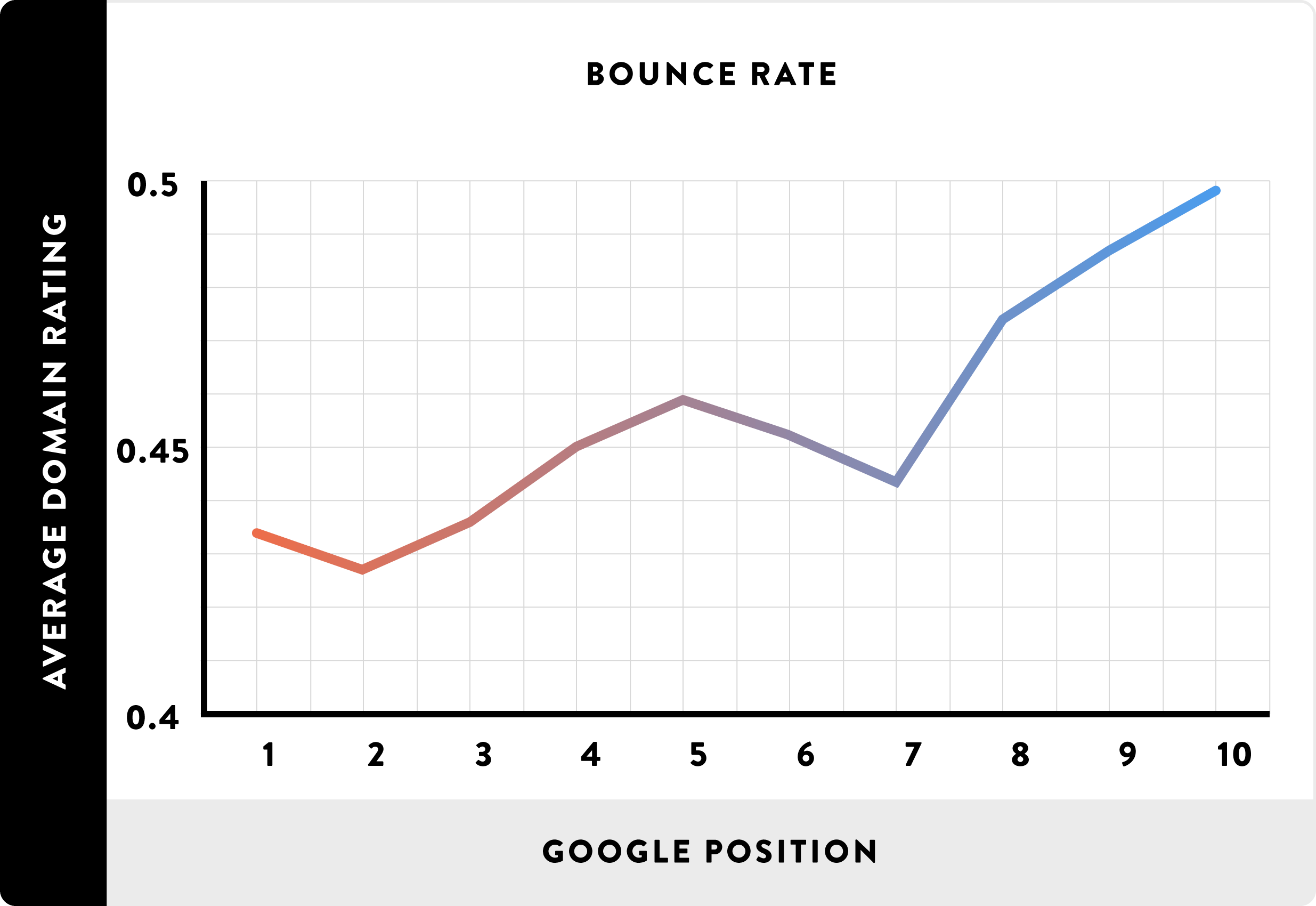
Case in point: The study found a direct correlation between a low average bounce rate and higher rankings.
Keep in mind though that this doesn’t actually mean low bounce rates directly CAUSE higher rankings. Google may use the bounce rate as a ranking signal; they may not – this is an unknown. But we do know that a low bounce rate is a byproduct of high-quality, relevant content – which Google does measure.
Therefore, improving your bounce rate could simply come down to making your content as engaging as possible. An aesthetically pleasing, user friendly website with oodles of interesting stuff to read will make visitors stick around longer. That means you’ll have a lower bounce rate, which correlates with a higher Google ranking.
Long-form content ranks better than short-form content.
Following on from the previous point, it makes sense for longer articles to get more engagement than short ones.
Well, thanks to this study, turns out it’s true! Who woulda thunk it?
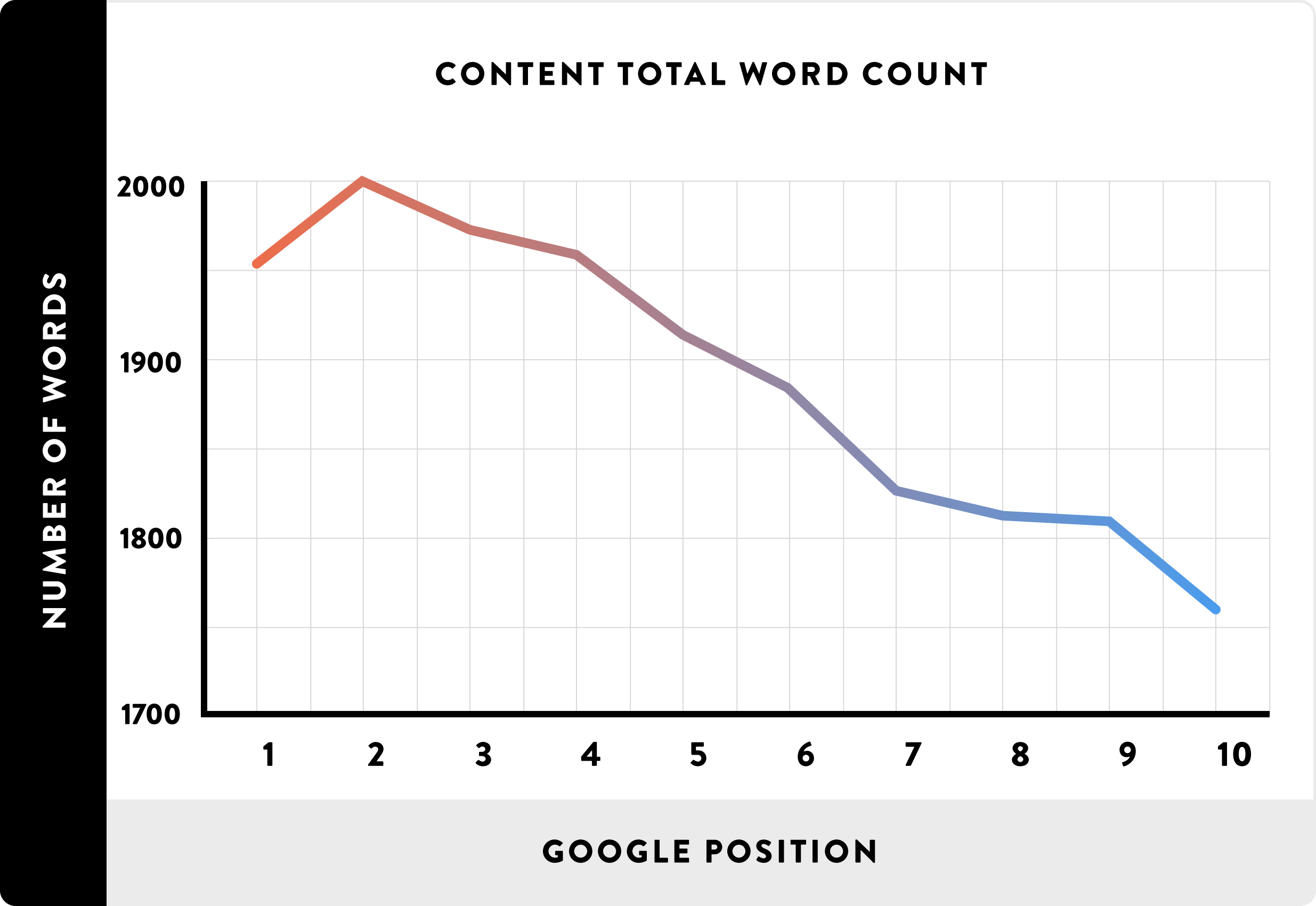
But then, isn’t the average Internet user’s attention span getting shorter and shorter? After all, technology is evolving at such a rapid pace that grabbing attention AND retaining it needs to be considered, right?
It depends. There’s definitely an audience that prefers short and snappy content. However, it wouldn’t make sense to market to this demographic – their likeliness to actually engage with your content (they like short and snappy, remember?) is minimal anyway. Why would Google give you a high ranking if people don’t really hang around on your site?
The study has shown a clear correlation between more content and higher search engine rankings. This could be due to longer content generating more social shares (engagement!), and/or it could just be Google’s preference for long-form content because it’s more likely to boost the topical relevancy of your page, thus giving the search engine a better “understanding” of your website. More on this later.
Long form content demonstrates expertise and authority on the subject. Intuitively, if people like what they’re reading, they will probably keep reading. That means they stay on your site longer, which is a good thing – for your user's interest and your search engine rankings!
More focused, topical content = higher rankings.
Back in the day, Google would look at a site and count out all the keywords to determine the page topic. However, this made it possible for unethical SEO practices such as keyword stuffing (including certain keywords an unnatural amount of times in the content) which led to rorting of the Google search engine rankings.
These days, Google is much smarter than that. The Hummingbird Algorithm means Google now understands the topic of practically any page. Websites that still try to game the system with dodgy SEO practices are swiftly penalised and removed from the search results.
So what’s a website owner to do with their content, that will also help their SEO? Why, write more original, useful content for your site, right?
That’s half of the equation. The study found in-depth content that covers a single topic comprehensively performed much better on Google versus “shallow” content – so for example, content that only covers the basics of the topic, or perhaps covers a range of topics instead of just one.
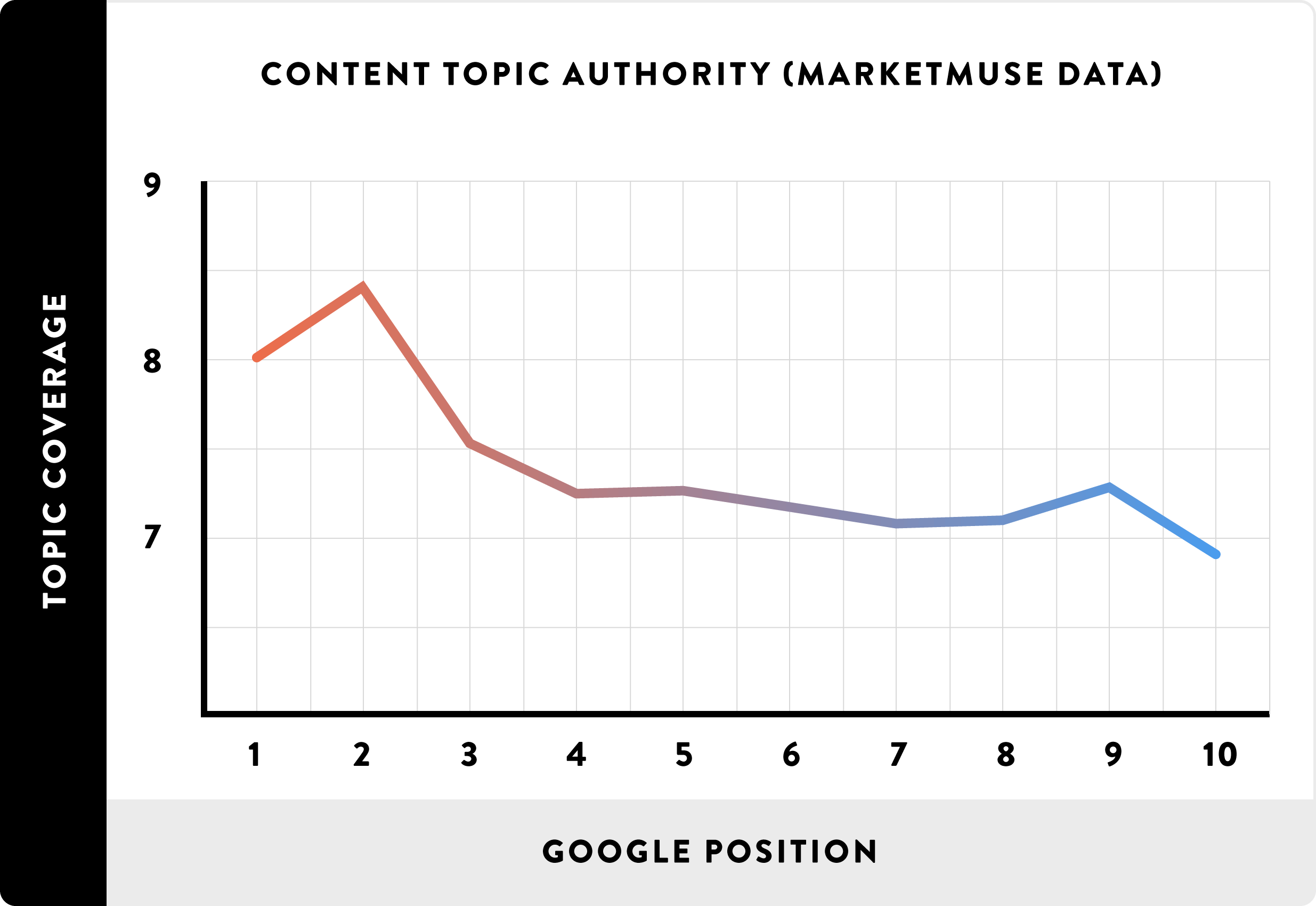
We mentioned topical relevancy already in this article. If you’ve been reading the previous sections, then this point shouldn’t come as a surprise to you.
It is obviously easier to be topically relevant in a long piece of content rather than a short one. Therefore, it is also easier to rank better on Google if your long piece of content explores a single point in-depth, rather than 10 different subjects.
Long story short: Whatever your page is about, cover that topic as in-depth as you can – preferably more comprehensively than everyone else!
Site speed matters.
This one isn’t really a secret. Google has used site speed as a ranking signal since 2010. They publicly stated so here.
But how much of a factor is it, when it comes to your Google ranking?
The study found that when assessing overall site speed (ie. Not individual pages, rather the average of the whole site) there’s a clear correlation between average page load speed and search engine rankings:
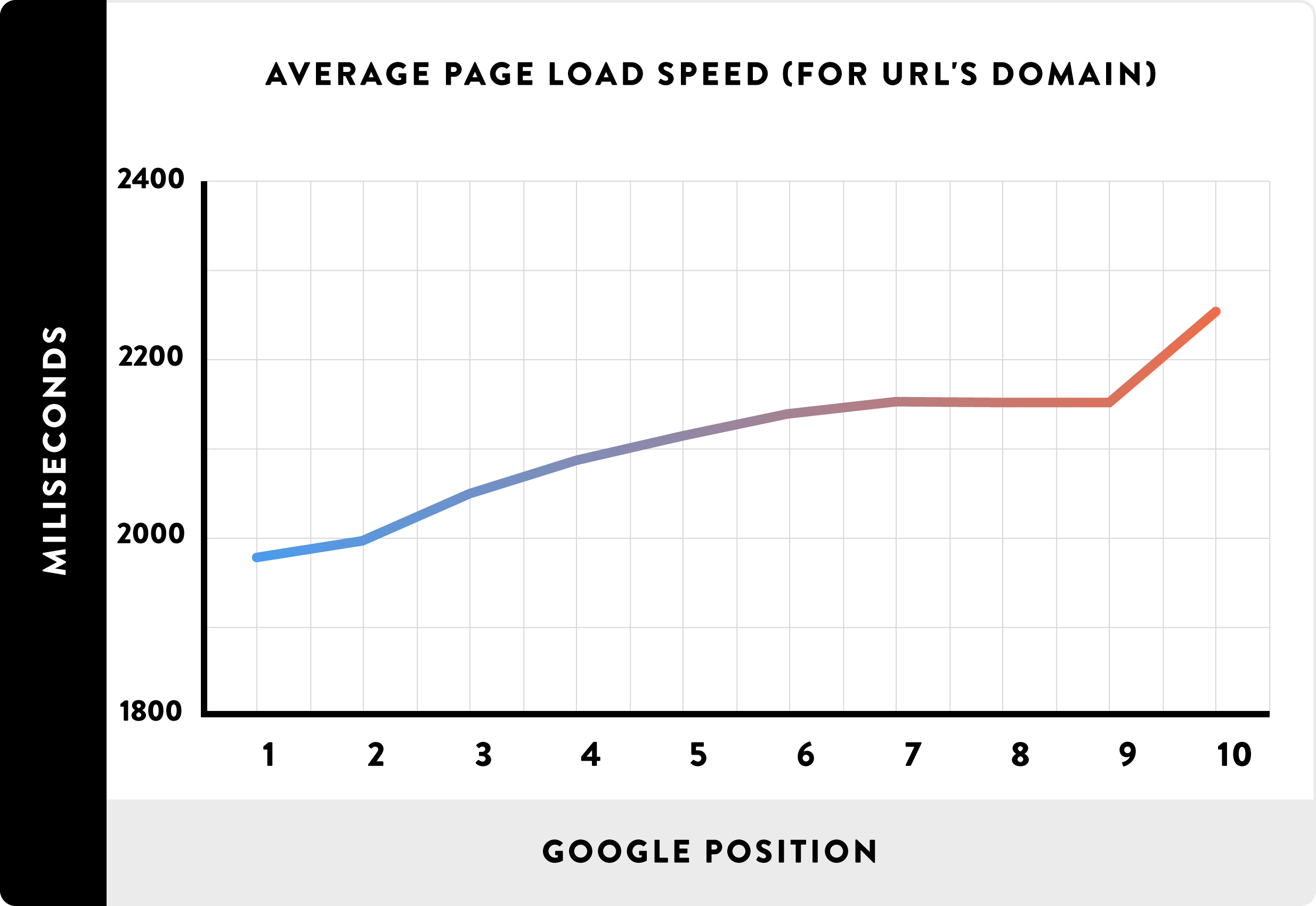
Optimising your website for speed also means you are optimising your website for higher Google rankings.
So there’s really not much else to say, except work on making your site as fast-loading as possible! If you don’t know how, talk to your webmaster. If they don’t know, you can always talk to us. We know our stuff.
Key Takeaways
At the end of the day, Google is all about providing value to users.
You and I hop onto Google search whenever we need to learn, discover, ascertain, clarify, or understand. If our search does not help us achieve these goals, we don't have a reason to use Google.
So appease our Google overlords by following the points outlined above, which all serve to make the user experience as smooth and informative as possible. If your site benefits the user, your site benefits Google – so give Google every reason to rank your website highly!